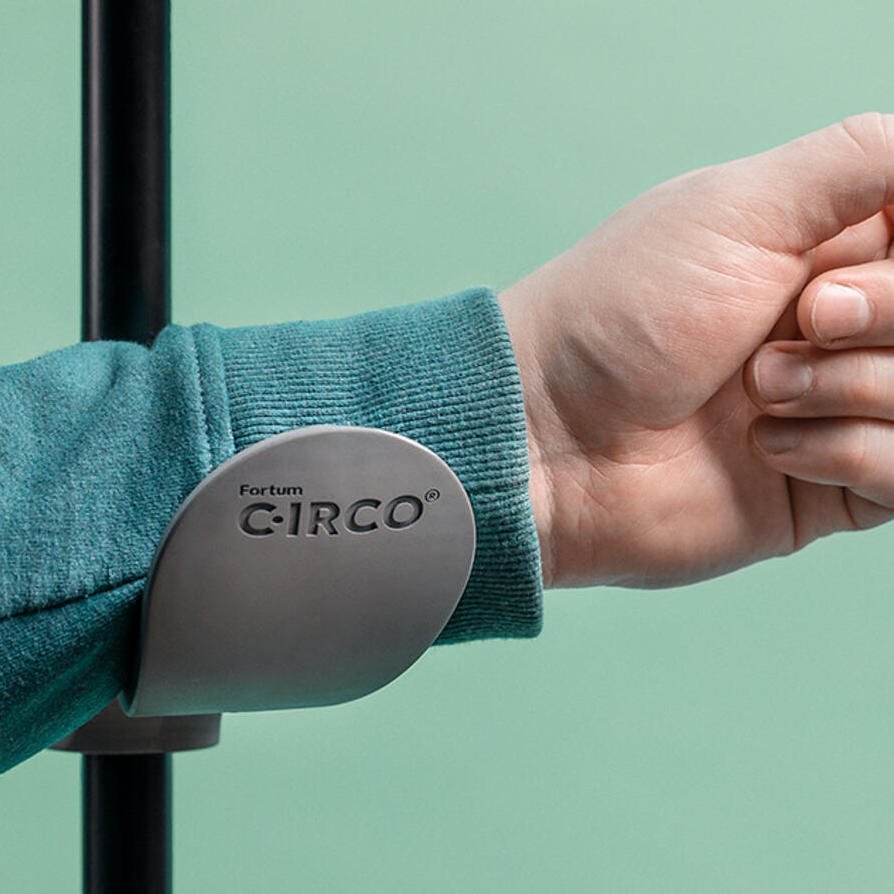
10 Design Innovations to Tackle COVID-19
The design community has really shown its heart in 2020. Since the coronavirus that causes COVID-19 created a global pandemic, architects, engineers , interior designers, product designers, packaging designers and other professionals from the field have leapt to work to develop solutions to help the world to better cope with the challenges faced by societies across the world. Here are some of the best.
MIT develops disinfectant robot that uses UV light to kill COVID
The incredible Scientists from the Computer Science and Artificial Intelligence Lab (CSAIL) at Massachusetts Institute of Technology have actually developed a robot that uses UV light to kill the coronavirus. The plan is that it would be used to disinfect warehouses, schools and offices, making them safer spaces within which to work. In tests, the robot neutralised 90% of coronavirus particles within a 4,000 sq. ft. area in just 30 minutes. Check out the video here.
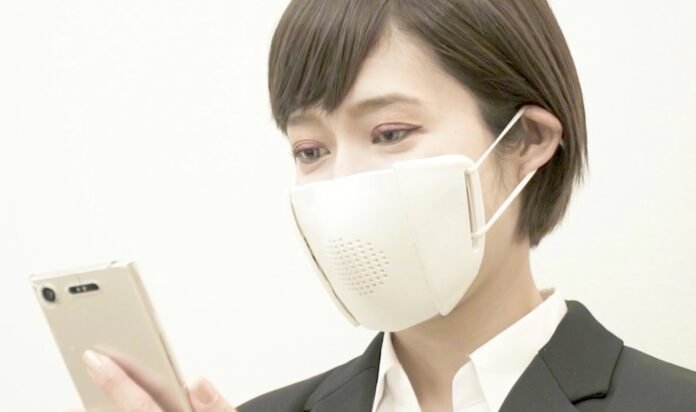
Donut Robotics develops smart masks that connect to smartphones
Start-ups are renowned for their drive to innovate and Japanese firm Donut Robotics proves the theory with its 2020 unveiling of a new smart face mask, which uses Bluetooth technology to connect to smartphones. The mask, known as the “C-Mask”, connects to an app, allowing users to make remote calls without speaking directly into their phones and send text messages via speech. It also translates Japanese into eight other languages, amazingly, and amplifies the user’s voice in case it’s muffled by the mask.
Arup designs modular parklets to help restaurants reopen
The impact of COVID-19 on the economy has been well documented. London engineering company Arup, in conjunction with Liverpool City Council and Meristem Design, has done its bit to help Merseyside restaurant owners struggling to stay open by developing parklets: hybrid street furniture and planters that create outdoor seating areas made from hardwood with social distancing enabled via Perspex glass screens and plants to separate diners. The council calls the scheme Without Walls and you can read more about it here.
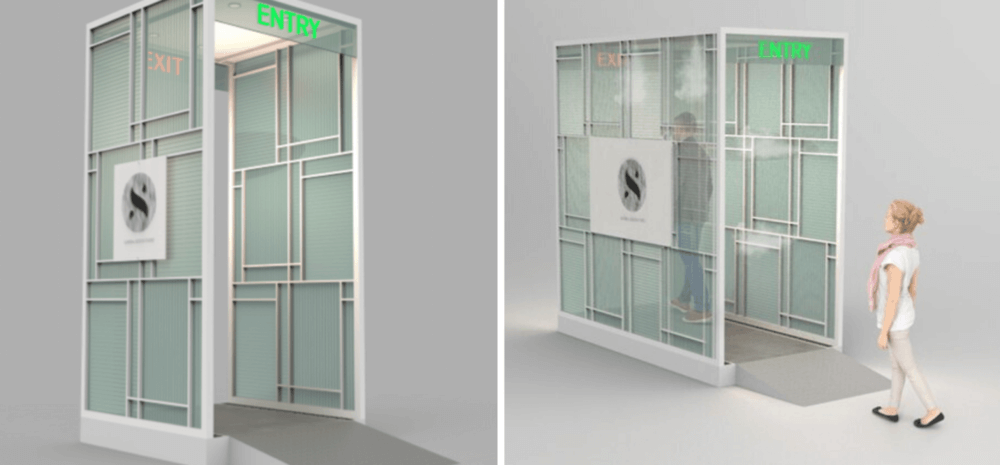
Surreal Design Studio creates tunnels and booths that sanitise pedestrians
The Mumbai based retail décor firm Surreal Design Studio has developed touch-free, walk-in systems that sanitise anyone who passes through them within just five seconds. The booths and tunnels, placed at the entrances of retail, hospitality and other high-density locations, could prove invaluable in allowing those places to remain open by allowing 750 walk-in sanitisations per hour. Special features include facial recognition, temperature mapping and automatic hand sanitising, available at client request.
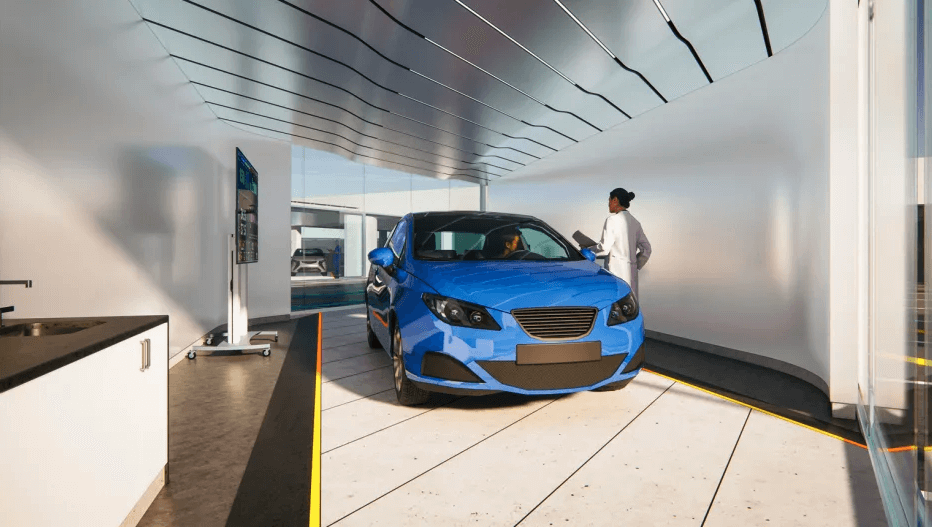
NBBJ architects design drive-through medical clinics
“The In Car Care Unit” developed by architecture firm NBBJ plugs the gap between in-person care (deemed high-risk for medical staff) and tele-health (where critical symptoms may be overlooked). The idea is that it can be deployed in hospital parking bays and garages, taking up the equivalent of two columns in a hospital car park. The prefabricated units could be installed quickly on-site, a bit like IKEA furniture, and would provide a safe space from which medical teams can treat patients while maintaining social distance.
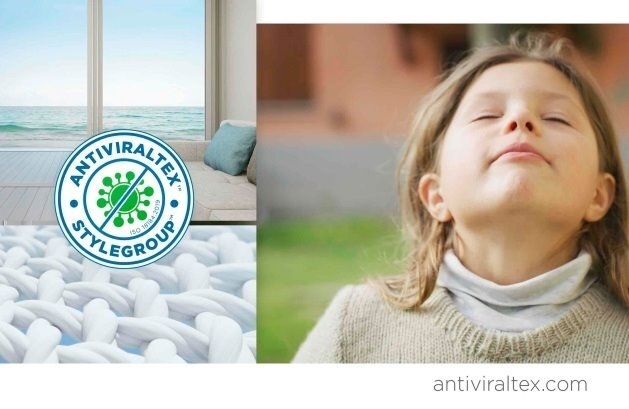
Style Group launches new line of COVID-19-fighting fabrics
Bradford, UK based fabric company Style Group has launched a new range of innovative textiles made from Antivaltex, a new fabric that actually kills COVID-type viruses at the point of contact, and Aircleantex, a fabric that purifies the air by transforming UV light. Both of these technologies have been proven to eliminate both COVID-19 and the flu virus and have the approval of Microbiological Solutions LTC UK, meeting ISO requirements. These fabrics may be useful in developing not only clothing, but also upholstery, enabling workspaces to remain safe from COVID-19.
Boltgroup builds hands-free door opening and button pushing device
Fearless Touch is the new product designed and developed by Boltgroup that enables formerly simple tasks like opening doors, checking emails, pushing lift buttons and taking out the bins, now made high-risk by the spread of COVID-19. The simple, flat shape can be printed by any 3D printer in the world without support material and takes into account 95% of human hand dimensions, making it a natural hand extension for virtually anyone.
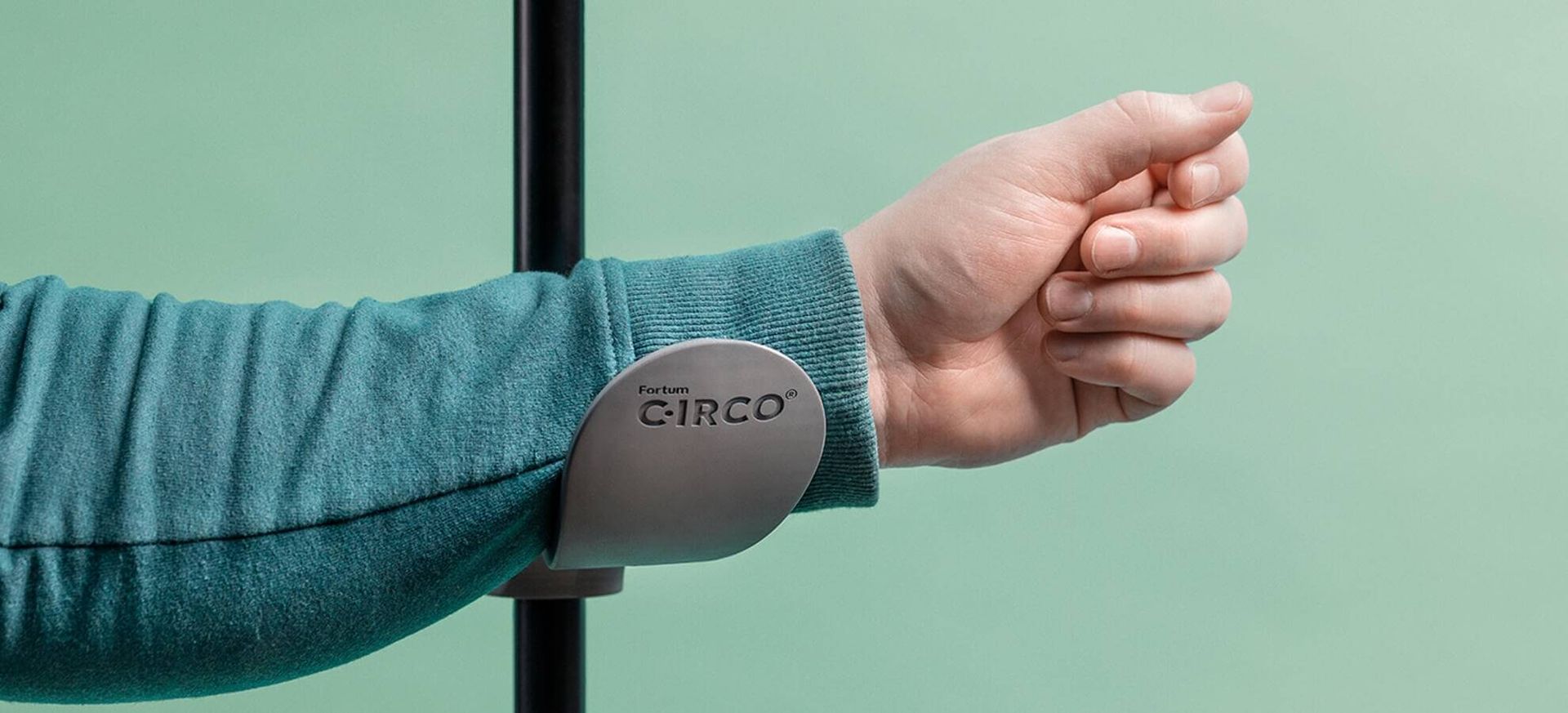
Fortum develops hands-free door handle to help reduce spread of COVID-19
The Finnish state-owned energy company, Fortum, has satisfied the needs of the new global generation of germophobes by developing a new hands-free door handle that helps to minimise the spread of the coronavirus that causes COVID-19. A simple add-on to existing door handles, it allows people to open doors using their forearm, leaving hands and fingers free from contamination. Even better, it’s made of Fortum Circo®, a post-consumer plastic recyclate made from everyday consumer and commercial plastic waste.
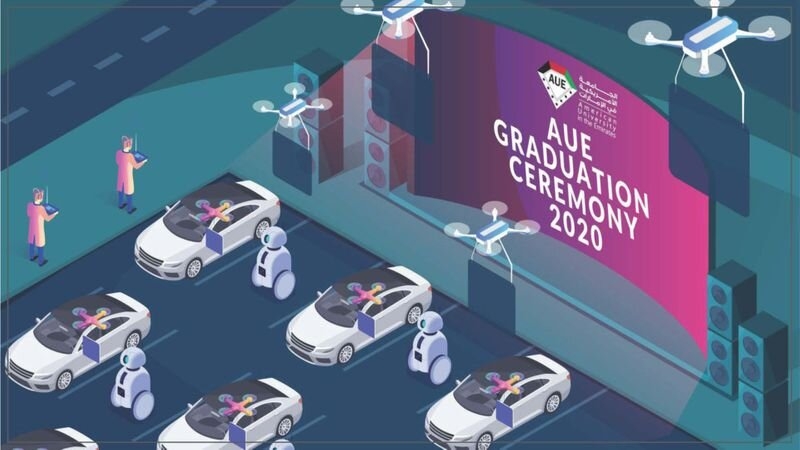
The American University in the Emirates uses drones at drive-in graduation
On July 15th, the American University in the Emirates (AUE) held a first-of-its-kind event: a drive-in graduation ceremony, where members of the 2020 Class of Hope were handed their degree certificates by drones flying to their cars, allowing for social distancing to be maintained whilst still enabling the camaraderie, ceremony and celebration of the classic graduation ceremony. Drivers were able to access an FM radio channel to follow the ceremony and, afterwards, a spectacular light show featured 120 drones entertained the crowd.
Read Along app by Google helps children learn to read remotely from home
With large numbers of pupils still studying remotely from home, essential early childhood developments like learning to read have been compromised by the COVID-19. Google has leapt to the rescue with its new Read Along app, which uses speech recognition technology so that children can develop their literacy skills. Read Along initially launched in India under the name “Bolo” and has now been rolled out under its new name to over 180 countries in nine languages.
Heartfelt thanks, on behalf of everyone here at Riluxa, to all the above designers for doing important work to handle this challenging situation. We are blown away by your ideas, by your selflessness and by your tireless work to make your innovations a reality.
Looking for something else to read? Check out our article on what coronavirus will mean for the architecture industry.